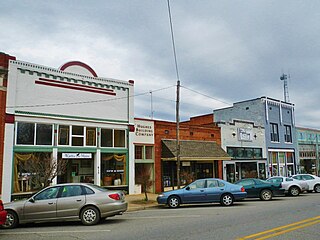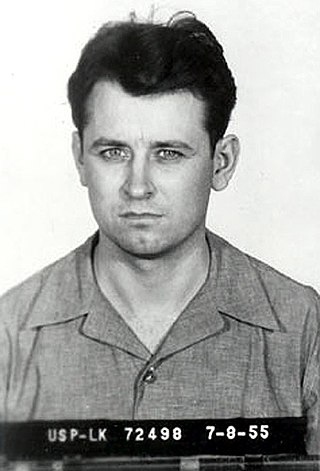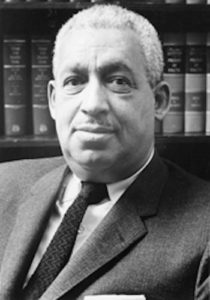
Martin Luther King Jr. was an American Christian minister, activist, and political philosopher who was one of the most prominent leaders in the civil rights movement from 1955 until his assassination in 1968. A Black church leader and a son of early civil rights activist and minister Martin Luther King Sr., King advanced civil rights for people of color in the United States through the use of nonviolent resistance and nonviolent civil disobedience against Jim Crow laws and other forms of legalized discrimination.

Montevallo is a city in Shelby County, Alabama, United States. A college town, it is the home of the University of Montevallo, a public liberal arts university with approximately 3,000 students. As of the 2020 census, the population of the city of Montevallo is 7,229.

Martin Luther King Jr. Day is a federal holiday in the United States observed on the third Monday of January each year. King was chief spokesperson for nonviolent activism in the Civil Rights Movement, which protested racial discrimination in federal and state law and civil society. The movement led to several groundbreaking legislative reforms in the United States.

Ralph David Abernathy Sr. was an American civil rights activist and Baptist minister. He was ordained in the Baptist tradition in 1948. As a leader of the civil rights movement, he was a close friend and mentor of Martin Luther King Jr. He collaborated with King and E. D. Nixon to create the Montgomery Improvement Association, which led to the Montgomery bus boycott and co-created and was an executive board member of the Southern Christian Leadership Conference (SCLC). He became president of the SCLC following the assassination of King in 1968; he led the Poor People's Campaign in Washington, D.C., as well as other marches and demonstrations for disenfranchised Americans. He also served as an advisory committee member of the Congress on Racial Equality (CORE).

Dexter Scott King was an American civil and animal rights activist, attorney, and author. The second son of civil rights leaders Martin Luther King Jr. and Coretta Scott King, he was also the brother of Martin Luther King III, Bernice King, and Yolanda King; and also grandson of Alberta Williams King and Martin Luther King Sr. He is the author of Growing Up King: An Intimate Memoir.

The University of Montevallo is a public university in Montevallo, Alabama. Founded on October 12, 1896, the university is Alabama's only public liberal arts college and a member of the Council of Public Liberal Arts Colleges. The University of Montevallo Historic District was established in 1979 and included 16 buildings on campus. It was expanded in 1990 to include 75 buildings total. It is located in a rural location in central Alabama.

Martin Luther King III is an American human rights activist, philanthropist and advocate. The elder son of civil rights leaders Martin Luther King Jr. and Coretta Scott King, King served as the fourth president of the Southern Christian Leadership Conference from 1997 to 2004.

Robert Sylvester Graetz Jr. was a Lutheran clergyman who, as the white pastor of a black congregation in Montgomery, Alabama, openly supported the Montgomery bus boycott, a landmark event of the civil rights movement.
David Jeffries Garrow is an American author and historian. He wrote the book Bearing the Cross: Martin Luther King, Jr., and the Southern Christian Leadership Conference (1986), which won the 1987 Pulitzer Prize for Biography. He also wrote Liberty and Sexuality (1994), a history of the legal struggles over abortion and reproductive rights in the U.S. prior to the 1973 Roe v. Wade decision, Rising Star: The Making of Barack Obama (2017), and other works.

Johnnie Rebecca Daniels Carr was a leader in the Civil Rights Movement in the United States from 1955 until her death.

The sermons and speeches of Martin Luther King Jr., comprise an extensive catalog of American writing and oratory – some of which are internationally well-known, while others remain unheralded and await rediscovery.

James Earl Ray was an American fugitive convicted of the assassination of Martin Luther King Jr. at the Lorraine Motel in Memphis, Tennessee, on April 4, 1968. After the assassination, Ray fled the United States and was captured in the United Kingdom. Ray was convicted in 1969 after entering a guilty plea—thus forgoing a jury trial and the possibility of a death sentence—and was sentenced to 99 years of imprisonment.

William Robert Ming Jr. was an American lawyer, attorney with the National Association for the Advancement of Colored People (NAACP) and law professor at University of Chicago Law School and Howard University School of Law. He presided over the Freeman Field mutiny court-martials involving the Tuskegee Airmen. He is best remembered for being a member of the Brown v. Board of Education litigation team and for working on a number of the important cases leading to Brown, the decision in which the United States Supreme Court ruled de jure racial segregation a violation of the Equal Protection Clause of the Fourteenth Amendment of the United States Constitution.

Randolph T. Blackwell was an American activist of the Civil Rights Movement, serving in Martin Luther King Jr.'s Southern Christian Leadership Conference, amongst other organizations. Coretta Scott King described him as an "unsung giant" of nonviolent social change.
Richie Jean Sherrod Jackson, was an American author, teacher, and civil rights activist.
Harvard Sitkoff is an American historian.

Joseph W. Ellwanger Jr. is a Lutheran pastor, author, and civil rights activist. He was a key figure in the Civil Rights Movement in Birmingham, Alabama, and the only white religious leader included in strategy meetings with Martin Luther King Jr.
Sudarshan Kapoor is a professor emeritus, California State University at Fresno, where he taught during several decades. Kapoor is an advocate of non-violence, and an activist practicing Gandhi's philosophy at both the local and national levels. A supporter of the African-American struggle for justice, he also serves as a resource on its story.













